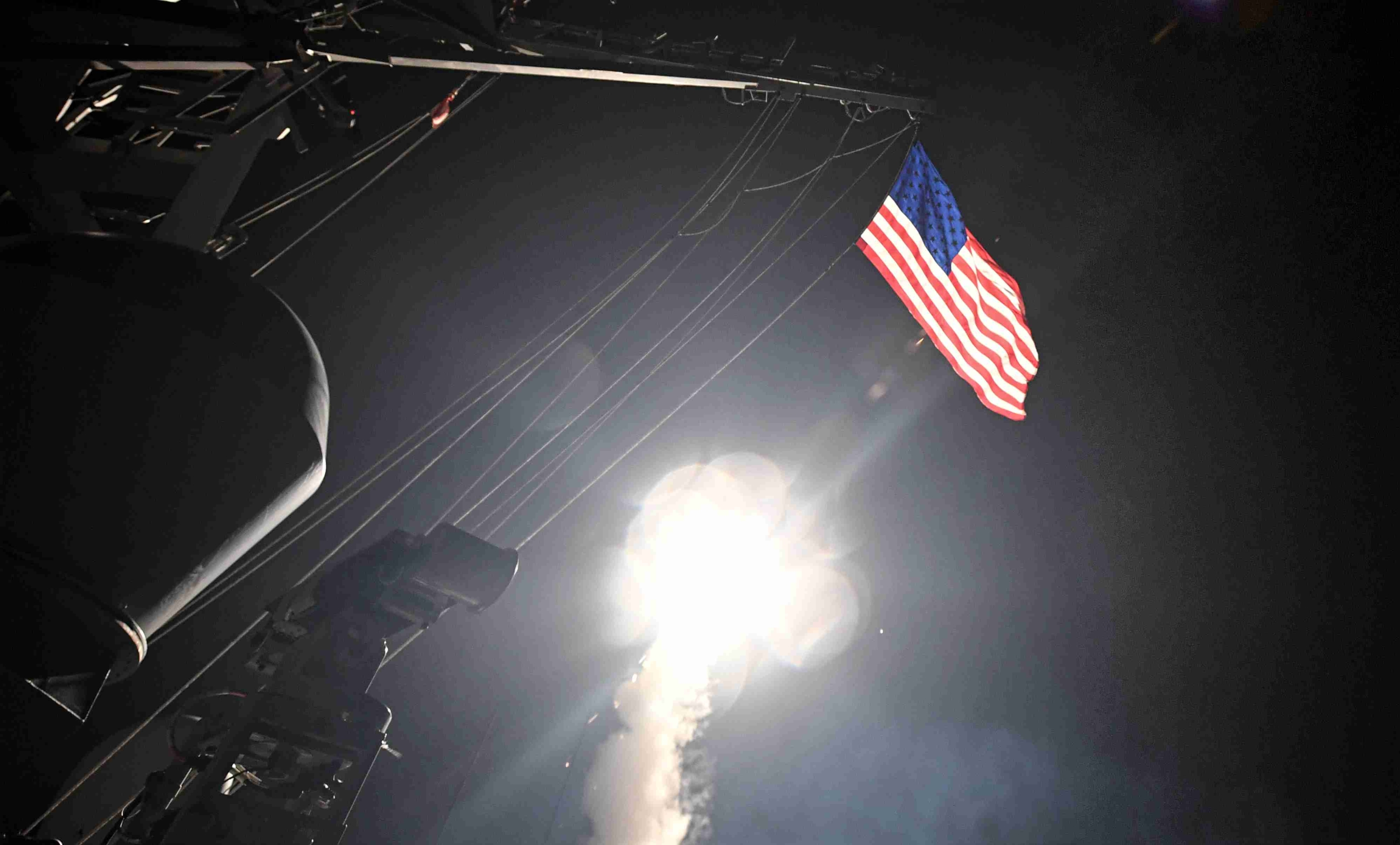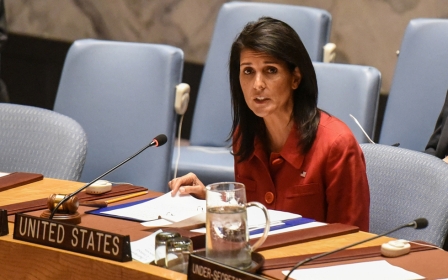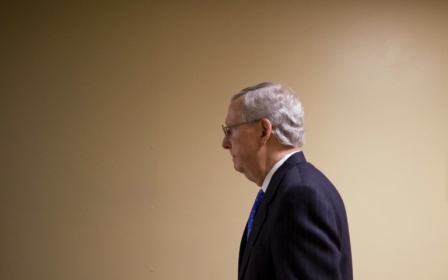Iran, Russia, Hezbollah: US aggression in Syria crosses 'red lines'

A joint command centre made up of the forces of Russia, Iran and Hezbollah said the US strike on a Syrian airbase crossed "red lines," hours after the US indicated removing President Bashar al-Assad was the only hope for peace.
"What America waged in an aggression on Syria is a crossing of red lines. From now on we will respond with force to any aggressor or any breach of red lines from whoever it is and America knows our ability to respond well," said the statement published by the group on media outlet Ilam al-Harbi.
The statement echoes the words of the US president, Donald Trump, who on Thursday said a nerve agent attack on the town of Khan Shaikhun, Idlib, went "beyond the red line" - itself a reference to his predecessor Barack Obama's statements in 2013 on the use of chemical weapons.
Trump ordered a cruise missile attack on a Homs airbase on Friday in response. The US military said several Syrian air force jets were destroyed.
The Russia-Iran joint command said on Sunday that the US military presence in northern Syria, where Washington is aiding its Kurdish and Arab allies against the Islamic State group, was an "illegal occupation".
The Kremlin meanwhile said Russia's president, Vladimir Putin and Hassan Rouhani, his Iranian counterpart, agreed in a telephone call that that US aggression against Syria was not permissible and violated international law. The two leaders also called for an objective investigation into Khan Sheikhun.
The statements come hours after Nikki Haley, the US ambassador to the UN, said that Washington could not see peace in Syria while Assad remained in power.
She told CNN's "State of the Union" programme on Sunday, "there's not any sort of option where a political solution is going to happen with Assad at the head of the regime".
"If you look at his actions, if you look at the situation, it's going to be hard to see a government that's peaceful and stable with Assad," said Haley.
"Regime change is something that we think is going to happen.
Haley reiterated the comments of Rex Tillerson, the US secretary of state, who insisted that defeating Islamic State was the priority for the White House.
"It's important that we keep our priorities straight," said Tillerson. "Once the [IS] threat has been reduced or eliminated, I think we can turn our attention directly to stabilising the situation in Syria."
Haley on Saturday said Washington was ready to take additional action to the US cruise missile attack.
Syria officially relinquished its chemical arsenal and signed the Chemical Weapons Convention in 2013 to avert military action after it was accused of an attack outside Damascus that killed hundreds.
But there have been repeated allegations of chemical weapons use since.
Assad's principal backer, Russia, has said the chemical release in Khan Sheikhun was the result of Syrian jets bombing a rebel weapons store. Rebels have denied they own or can produce nerve agents like Sarin.
Tillerson insisted he had no concerns about possible Russian retaliation after the US attack on the airbase.
"The Russians were never targeted in this particular strike," Tillerson said.
"It was a very deliberate, very proportional, and very targeted strike undertaken in response to the chemical weapons attack. And Russia was never part of the targeting."
By proxy Russia is responsible for every civilian death last week
- Michael Fallon, UK defence secretary
Britain's defence secretary, Michael Fallon, on Sunday criticised Russia's support of Assad, describing the chemical attack as a war crime that happened "on their watch".
"By proxy Russia is responsible for every civilian death last week," Fallon wrote in the Sunday Times newspaper.
Russia meanwhile said a decision by the British foreign secretary to cancel a visit to Moscow later this month showed a lack of understanding of events in Syria.
Boris Johnson cancelled the visit, scheduled for 10 April, on Saturday, saying events in Syria had changed priorities.
The Russian foreign ministry said the decision showed once more that there was little to gain from talking to Britain, which it said had no real influence over world affairs.
New MEE newsletter: Jerusalem Dispatch
Sign up to get the latest insights and analysis on Israel-Palestine, alongside Turkey Unpacked and other MEE newsletters
Middle East Eye delivers independent and unrivalled coverage and analysis of the Middle East, North Africa and beyond. To learn more about republishing this content and the associated fees, please fill out this form. More about MEE can be found here.




